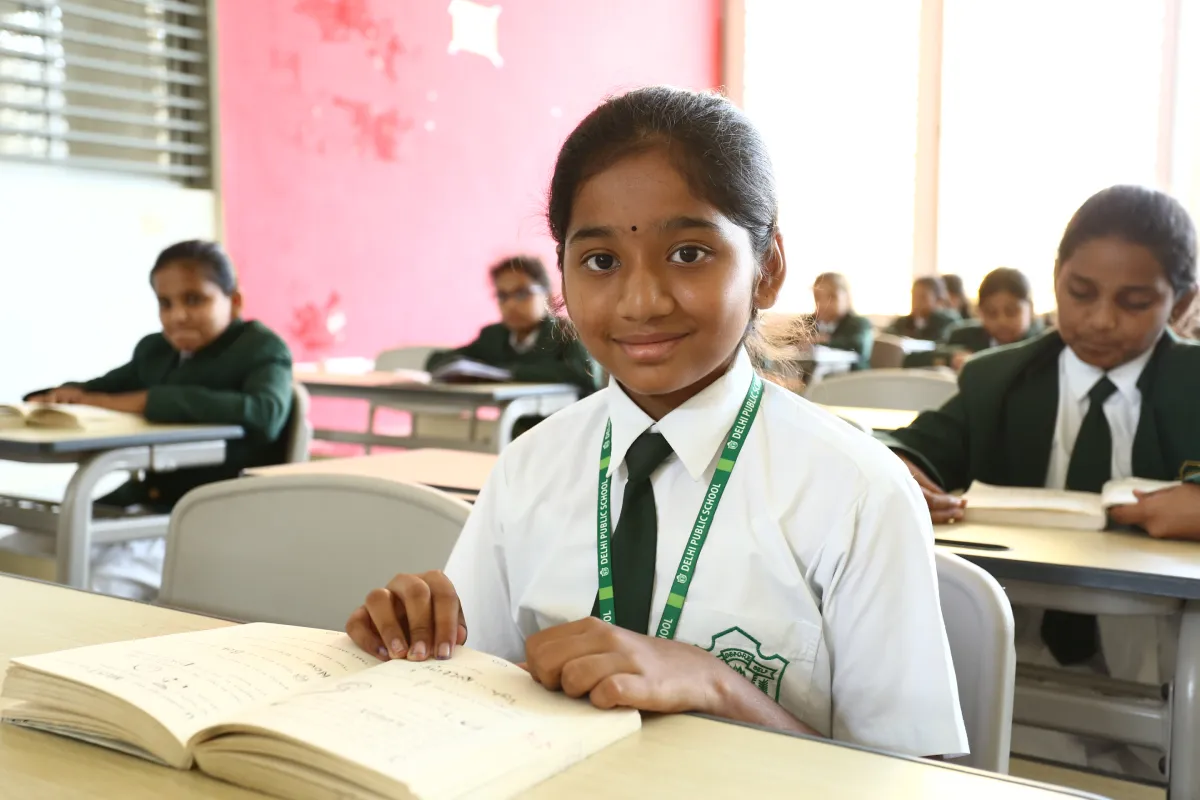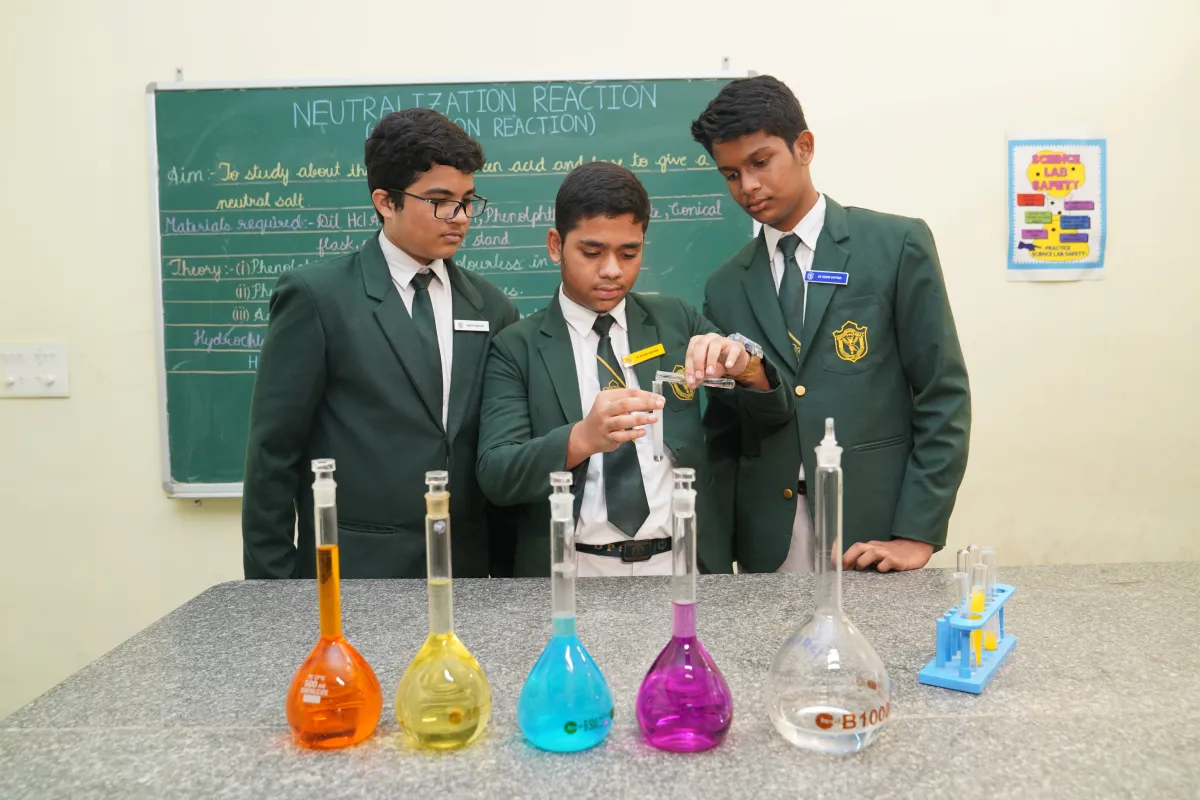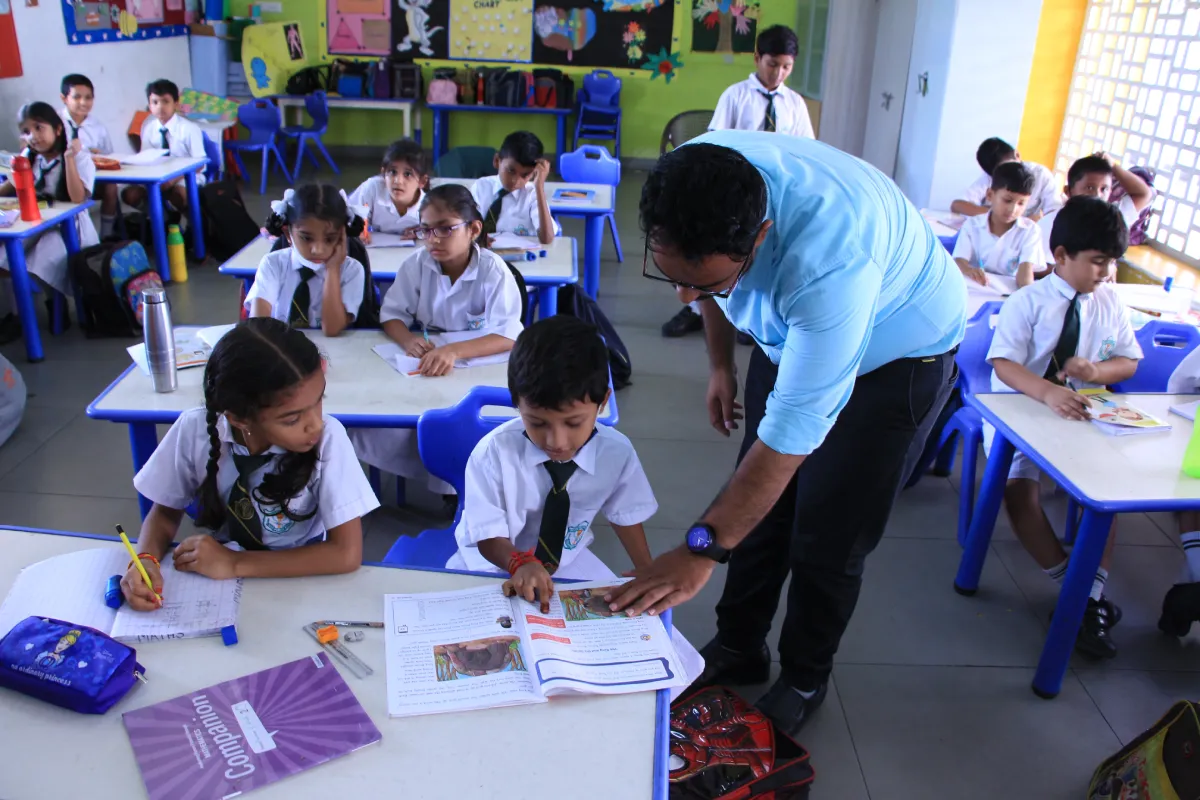Academic framework for instruction
The Central Board of Secondary Education, or CBSE, is a national level board for education in India serving public and private schools in India and around the world, with its headquarters in New Delhi. The Union Government of India oversees its operations. The CBSE is associated with over 20,000 schools in India and overseas, which follow the [The National Council of Educational Research and Training] NCERT curriculum.
DPS Warangal also follows the CBSE board. Over the course of the entire learning process, it applies the NCERT Curriculum’s study plan and follows the CBSE’s recommendations for evaluation in every class. It provides education to the students of classes Nursery to 12 at four levels:


- Pre-primary & Primary: Classes Nursery, LKG and UKG & Classes 1 to 5
- Middle School: Classes 6 to 8
- High School: Classes 9 and 10
- Senior Secondary: Classes 11 and 12
All of the academic courses on the school’s curricula as well as a wide range of extracurricular activities inspire pupils to be creative, artistic, and adventurous. English, Hindi, Mathematics, EVS/Science (Physics, Chemistry, and Biology), Social Studies (History, Civics, Economics, and Geography), and an elective language are taught.
Co-curricular activities include computer education, physical health education, and socially beneficial and constructive employment (Fine Arts Club, Music Club, Dance Club, Literary Club, Robotics Club, IT Club, Mathematics Club, Science Club, Social Science Club, Photography & A. V. Squad Club, and Quiz & Event Management Club).


Smart boards are used for instruction, across all classes for every subject, allowing a deeper level of engagement and interaction between the teachers and students. Written tests, activities, oral exams, quizzes, debating, projects, etc. are all forms of assessments.
These are conducted periodically to provide teachers and students with continuous feedback so they can decide what changes need to be made in the learning journery.
Regular Parents Teacher Meetings [PTM] are organised at the school to provide parents an insight about their children’s progress. The teachers review not only in academic disposition but also how the child is responding to other co-curricular activities. The behaviour of the child towards his teachers, elders and his classmates is assessed throughout and also discussed with the parents.
Given the preparation of the school’s tech facilities, if teaching needs to be done remotely, the infrastructure is geared to switch from offline to online classes, with short notice to ensure there’s no disruption in the education plan for students.



